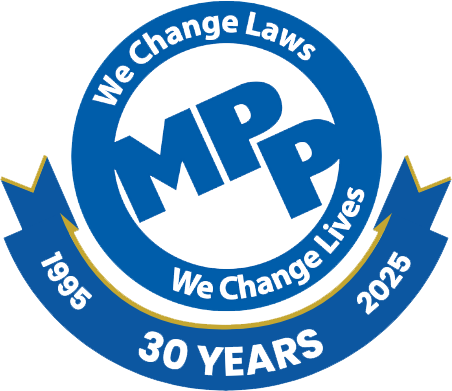- Take Action: Urge your state legislators to support a compassionate medical cannabis program!
Press Release
MPP Issues Statement Regarding the Outcome of the Ohio Marijuana Initiative

FOR IMMEDIATE RELEASE
Wednesday, November 4, 2015
Contact: Violet Cavendish
vcavendish@mpp.org
At least five states are expected to vote on proposals to regulate and tax marijuana like alcohol next year, and what happened in Ohio is NOT an indicator of how they will fare; the 2016 initiatives do not include the widely unpopular ‘monopoly’ language that plagued the Ohio campaign, and they will benefit from heightened voter turnout during a presidential election
WASHINGTON, D.C. — The defeat of a marijuana-related ballot initiative in Ohio on Tuesday will have no bearing on the outcomes of several marijuana-related initiatives expected to appear on state ballots next year, according to the Marijuana Policy Project (MPP). At the time of this release, Issue 3 was trailing 35-65 with 43% of precincts reporting and The Columbus Dispatch had called the election.
A proposal to make marijuana legal for adults and regulate it like alcohol has already qualified for the November 2016 ballot in Nevada, and similar measures are expected to qualify for the ballots in Arizona, California, Maine, and Massachusetts. The measures do not include the widely unpopular “monopoly” language included in the 2015 Ohio initiative that limited the commercial cultivation of marijuana to only 10 predetermined producers. The 2016 initiatives are also expected to benefit significantly from heightened voter turnout during a presidential election.
MPP is supporting several of the 2016 initiative efforts. It neither supported nor opposed the Ohio initiative this year.
Statement from Mason Tvert, director of communications for the Marijuana Policy Project:
“It’s pretty obvious that the outcome in Ohio does not reflect where the nation stands or the direction in which it is heading when it comes to marijuana policy. It only reflects where Ohio voters stand on a specific and rather unique proposal in an off-year election. It will not have any bearing on the outcomes of the initiatives that we expect to appear on other states’ ballots in 2016.
“When voters in Nevada or Massachusetts get to the ballot box one year from now, they are not going to be thinking about what happened in Ohio a year earlier. They are going to be thinking about the problems marijuana prohibition has caused their states for so many years and the benefits of replacing it with a more sensible system. These initiatives will also benefit from heightened voter turnout during a presidential election year. The more voters that turn out, the more support we tend to see for marijuana policy reform.
“Polls show a strong and growing majority of Americans think marijuana should be legal for adults. There is a lot of momentum building behind the movement to end marijuana prohibition heading into 2016. Election Day was relatively uneventful this year, but next year it will be truly historic.”
###
Founded in 1995, the Marijuana Policy Project (MPP) is the nation’s leading cannabis policy reform organization. MPP has played a central role in passing dozens of cannabis policy reforms in states across the country, including 14 successful cannabis legalization campaigns, and also works to advance federal reforms.
